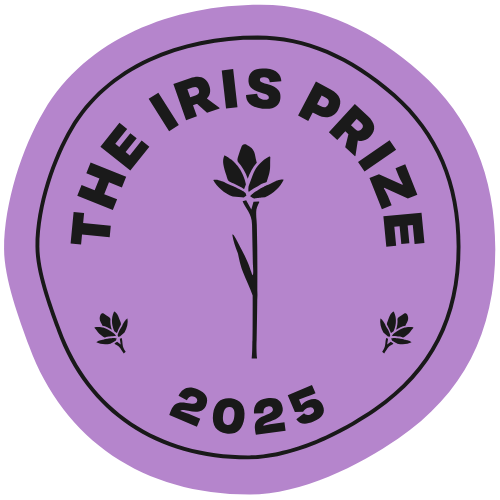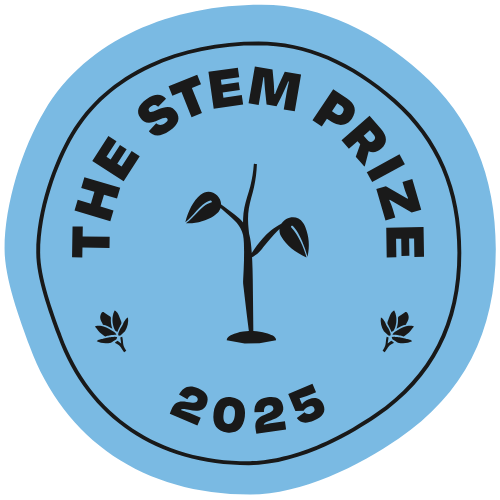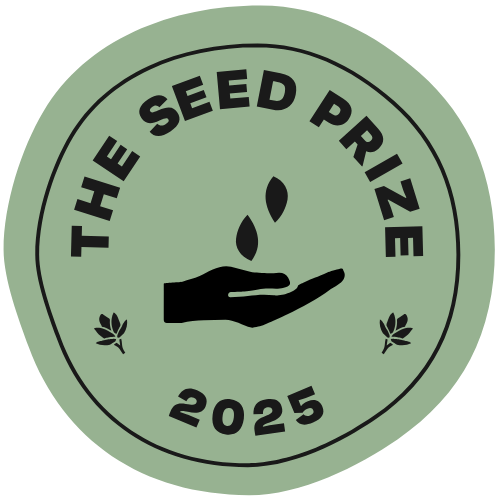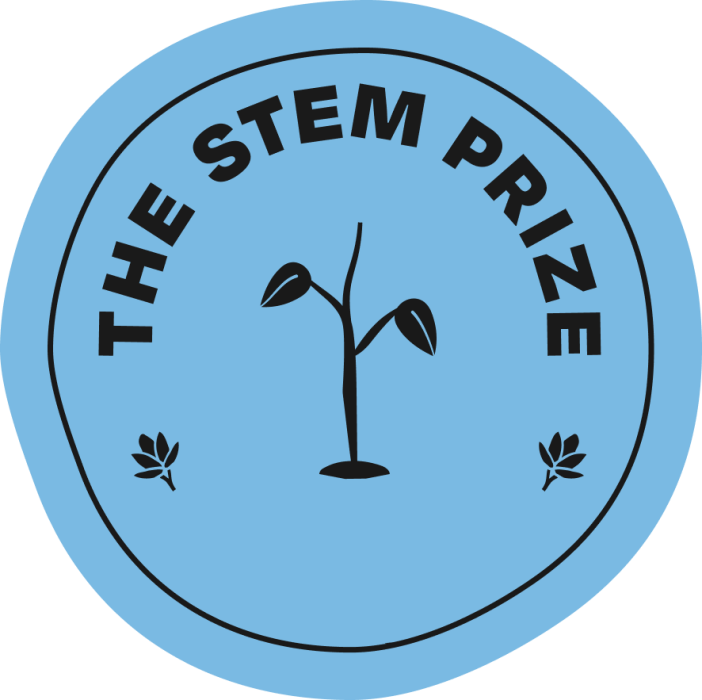
Iris Prize
Awarded to an established project, with the potential to replicate and scale.
Mexico. Non-binary (19 years old). Applying as an individual. Urban Pollinators aims to restore Tapachula’s lost biodiversity by transforming underused green spaces into pollinator and bird gardens, creating an educational corridor that reconnects communities with native species and cultural identity. This deeply personal, one-person initiative blends ecological restoration, cultural memory, and education in a city where seeing butterflies or native bees has become rare.
Nigeria. Male (23 years old). Applying on behalf of an organisation. Smartel tackles severe land degradation and food insecurity in northern Nigeria by building community hydroponic farms that grow food without soil, fertilisers, or excessive water use. With six farms already reaching 3,000 smallholder farmers, and a model rooted in climate-smart agriculture and local training, the project is scaling a sustainable, soil-free farming alternative while also repurposing plastic waste into the construction of the hydroponic systems.
India. Male (23 years old). Applying on behalf of a team. The Himalayan Restoration Project is building climate resilience, adaptation, and fighting the climate crisis to bring coexistence in the landscape and reduce the human-wildlife negative interactions. With 2 hectares restored, 1500 native saplings planted, and hundreds of women & students trained in nursery management & climate resilience, the project blends ecological restoration with conservation education for strong local leadership. The project aims to restore 860 ha of land provided by the communities from 28 villages.
Mauritius. Male (20 years old). Applying on behalf of an organisation. Sov Lanatir is restoring mangrove ecosystems in Mauritius through a community-led, science-based approach grounded in traditional knowledge and youth engagement. In response to severe coastal degradation, the project works with local residents and marine science students to establish nurseries and plant Rhizophora mucronata propagules, aiming to restore 1,000 m² of mangrove forest. By combining ecological restoration, cultural identity, and inclusive participation, it offers a locally rooted, replicable model for small island states facing climate vulnerability.
Tanzania. Female (20 years old). Applying on behalf of an organisation. EmpowerHER Tomorrow Initiative strengthens climate resilience in Tanzania by training young women and men to map land, secure legal tenure, and create village land-use plans that reduce environmental pressure and protect nature. With shifts in legal access, gender equity, and community-led conservation like protecting riverbanks from degradation, the project shows how securing land rights enables long-term climate adaptation and ecosystem stewardship.
South Africa. Female (21 years old). Applying on behalf of an organisation. EcoGuardians is restoring South Africa’s endangered KwaZulu-Natal Sandstone Sourveld by training local youth to remove invasive species, monitor biodiversity, and integrate indigenous knowledge into restoration. The application stood out for its focus on youth-led conservation, cultural heritage, and protecting endemic species like the KwaZulu Dwarf Chameleon in one of the country’s most threatened ecosystems.
Philippines. Male (24 years old). Applying on behalf of a team. Dulungan Conservation and Eco-learning Hub is an Iris Prize 2024 runner-up who is restoring forest landscapes in the Philippines by protecting the Dulungan Hornbill’s habitat while strengthening community leadership and reviving cultural practices. So far, they’ve engaged over 150 residents, established an agroecology site and nursery with 900 native seedlings, supported 11 women in reviving bariw weaving, and developed three conservation hubs. The project stands out for its deep community buy-in, co-designed approach, and integration of indigenous knowledge. It brings together restoration, livelihoods, and cultural renewal through inclusive development.
Anonymised for safety. Male (23 years old). Applying on behalf of a team. [confidential] is building a decentralised, youth-led climate movement in [confidential] by supporting rural, Indigenous, and marginalised youth with fellowships, microgrants, and green skills training. The initiative has empowered young leaders to develop climate-resilient solutions and bridge grassroots action with national advocacy. It stands out for its national reach, people-centred approach, and practical support model that centres frontline youth as drivers of systemic change.
Mongolia. Female (24 years old). Applying on behalf of an organisation. Breathe Mongolia is addressing the country’s air pollution and climate crisis through youth-led advocacy, real-time monitoring, and public education that connects environmental justice with health, equity, and democracy. The project stands out for its massive community response, strategic use of data, and intersectional approach to systemic change. They’ve trained over 600 youth, engaged 100 volunteers, facilitated cross-sector dialogue, and reached rural and marginalised communities with inclusive climate messaging. A national petition they led gathered over 71,000, prompting a parliamentary oversight hearing on air pollution policy.
Paraguay. Female (24 years old). Applying on behalf of an organisation. Guerrilla Verde is transforming polluted, flood-prone areas in Paraguay’s Bañados de Asunción through youth- and women-led agroecology, food sovereignty, and environmental education. Rooted in ancestral knowledge and community care, the project has created nine gardens feeding 800 people, trained 300 teachers and students, and composted 600 kg of waste, offering green alternatives in areas impacted by poverty, drug use, and landfill pollution. It stands out for its holistic approach that restores ecosystems while creating safe, empowering spaces for community participation and local leadership.

Stem Prize
Awarded to an existing project, established on a small scale (16-24)
Kenya. Male (24 years old). Applying as an organisation. Tujenge Mikoko is restoring mangroves as well as installing beehives to build sustainable livelihoods. So far, they have established 3 community-run mangrove nurseries and planted over 7,500 seedlings. The project has also introduced 15 beehives in restored areas, producing honey that supports local youth with income opportunities. Community involvement includes training programs, workshops, and partnerships with fishers to monitor progress. By combining ecology and economic benefits, the initiative protects coastal ecosystems while improving lives.
Uganda. Female (21 years old). Applying as an organisation. Regenerate the soil (Regesoil) is a project based in the Nakivale refugee settlement, home to over 200,000 refugees, which faces severe environmental and agricultural challenges threatening its sustainability. They are transforming food waste into organic fertiliser through vermicomposting, where worms efficiently break down waste into nutrient-rich compost. This organic fertiliser is distributed to participating farmers, enabling them to cultivate micro-food forests that restore degraded land, enhance climate resilience, and promote biodiversity. Additionally, they have planted over 5,000 trees, fruit, medicinal, and reforestation species to strengthen surrounding ecosystems.
Tanzania. Female (24 years old). Applying as a team. AfriPits is addressing severe land degradation in Tanzania’s Dodoma region, where climate change has caused erratic rainfall and prolonged droughts. This simple yet effective method of crescent-shaped water catchment pits dug into barren land increases water catchment, produces a higher crop yield and creates a micro-ecosystem for vegetation to grow. Through farmer training programs, AfriPits aims to rehabilitate over 100 acres of degraded land, helping communities build resilience against climate change.
South Africa. Male (24 years old). Applying as a team. Myco-Feeds is addressing multiple issues through their mushroom growing kits, aiming to make them affordable for lower-income families. Their approach involves collecting used coffee grounds from local coffee shops – waste that would otherwise be discarded – as a growing medium. They plan on piloting an urban farming network across 10 Durban communities, installing mushroom micro-farms in schools and community centres while collecting data on nutritional and economic outcomes.
Uganda. Male (24 years old). Applying as an organisation. Green SchoolYards is addressing the fundamentals of reforestation, which is creating green, shaded spaces where young people live and play – schools. What started out as an education initiative, “tree talks”, is now growing into a project that aims to restore 10 degraded primary schools in Northern Uganda. These schools have been selected as some of the high-risk areas where children are most exposed to extreme heat.
Ghana. Female (24 years old). Applying as an organisation. The Waste Gobbler combines renewable energy and circular economy to prevent up to 5,000 tons of municipal solid waste annually from entering the Atlantic Ocean via Accra’s Korle Lagoon. They aim to achieve this by using floating barricades that will divert river waste onto a conveyor belt fitted on a solar-powered decommissioned boat, where it is collected, transferred to shore, and sorted for recycling or composting. Working across the value chain, this solution directly addresses the pressing issue of uncollected waste polluting water bodies, threatening aquatic life, livelihoods, and public health.
Ghana. Female (19 years old). Applying as a team. Dinaani was started to create new opportunities for girls who migrate to the South of Ghana for new opportunities and to address the textile waste piling up in Accra. This is a women-led upcycling brand that transforms discarded T-shirts from Kantamanto, the world’s largest second-hand clothing market, into yarn. Using hand crocheting and weaving techniques rooted in Northern Ghana, they turn this yarn into products like tote bags, laptop sleeves, bottle holders, baskets, and gender-inclusive garments.
Mexico. Female (24 years old). Applying as an organisation. Viaje al Microcosmos de Nuevo León reconnects Monterrey residents with the Santa Catarina River by transforming it into a living laboratory and storybook. Through open expeditions, people of all ages use DIY microscopes and the iNaturalist app to observe and document local biodiversity. Since 2021, their community of over 600 citizen scientists has helped raise the number of recorded species from 781 to 1,126, including emblematic and protected species like the monarch butterfly, American beaver, and spiny soft-shell turtle. Once missing from official records, these findings now strengthen legal petitions for riparian protection and ecological restoration.
England. Female (21 years old). Applying as an individual. Tides of Change is a community-led conservation project blending science, education, and storytelling to tackle pollution in the Conwy estuary and protect the common blue mussel. The initiative focuses on three components: expanding educational outreach, producing a short documentary, and leading community-based monitoring. It began as a children’s book and now aims to expand into a documentary highlighting the impact of environmental change on mussels along the UK coast. Parallel to the film, citizen science efforts will involve schools and residents in monthly clean-ups and water testing, contributing valuable data to Natural Resources Wales and fostering local stewardship.
Nepal. Male (24 years old). Applying as an organisation. EcoMitra is a response to a growing problem in developing nations like Nepal—the heavy and uncontrolled use of chemical pesticides to manage crop threats. EcoMitra offers a community-centred approach that integrates lab-based innovations with grassroots action to reduce pesticide use and promote ecological balance. The solution is simple: releasing lab-produced biological control agents into the environment during periods when natural enemy populations are declining, followed by biodiversity conservation efforts to support and sustain their resurgence.
Mexico. Male (21 years old). Applying as a team. Ñuñuú Vee Na Ñu Chee Miel Casa Pueblo de Buena Vista is a community initiative that seeks to protect native bees and, at the same time, generate sustainable income for our Ñuu Savii families through the creation of a honey cooperative. Through the care and construction of traditional beehives, the monitoring of their territories, reforestation with honey plants and the rescue of ancestral knowledge, they seek to restore local biodiversity and strengthen food sovereignty. While working on community education workshops on beekeeping, defence of the territory, and indigenous rights.

Seed Prize
Awarded to a new idea, not yet established (14-24)
Kiribati. Female (22 years old). Applying as an organisation. Mangrove Island Restoration is tackling coastal erosion in South Tarawa, Kiribati by training young people to plant and care for mangroves along the island’s vulnerable shoreline. So far, they’ve established nurseries, run hands-on workshops, and revitalised traditional knowledge to create natural coastal barriers that protect homes, support marine life, and absorb carbon. The project stands out for its youth-led, community-driven approach rooted in local culture and practical climate resilience, offering a powerful model for adaptation across the Pacific.
Peru. Female. (21 years old). Applying as a team. Anonymous is supporting Indigenous and rural youth in Peru to protect the rivers and surrounding Amazonian basins from the devastating impacts of illegal gold mining. The team runs intercultural environmental education programmes and safe training spaces for young defenders, while helping communities organise, advocate for their rights, and protect those facing threats. It stands out for its grassroots leadership, focus on safety, and powerful combination of youth empowerment and environmental justice in one of the world’s most threatened ecosystems.
Tanzania. Male. (23 years old). Applying as an individual. Population survey of three critically endangered warty frogs species and raising awareness in Pare Mountains, a young conservationist is surveying three critically endangered warty frog species while working with local communities to protect their habitat. So far, the project has engaged 250 people through workshops and outreach, combining ecological research with awareness-raising to reduce threats like habitat loss and the illegal pet trade. It stands out for its grassroots-led, science-based approach that links species conservation with community wellbeing and sustainable livelihoods.
Jordan. Female. (24 years old). Applying as an individual. Roots جذور. is an early-stage project turning school grounds in Palestinian refugee camps in Jordan into green, healing spaces through sustainable gardening. It brings together refugee students, families, and local farmers to grow food, compost waste, and reconnect with the land in a context of overcrowding, water scarcity, and intergenerational trauma. The idea stands out for its community-led vision and its potential to restore both environment and wellbeing in one of the region’s most overlooked communities.
United States. Female. (23 years old). Applying as an individual. BY, FOR, WITHIN. In the deserts of the southwestern United States, this Diné and Hopi-led initiative is working with Indigenous communities to resist harmful extraction projects and reclaim stewardship of their lands. By translating technical documents, hosting educational forums, and sharing community knowledge, the project helps residents understand and challenge destructive developments while strengthening cultural ties and ecological care. It stands out for its grassroots, intergenerational approach to environmental justice, rooted in Indigenous knowledge and the belief that restoration begins with community empowerment.
Ghana. Male. (24 years old). Applying as a team. Starwan is tackling waste tyre pollution in Ghana by turning discarded tyres into durable, eco-friendly roofing materials for homes and businesses. The team’s solution hopes to reduce landfill waste and toxic emissions, create jobs for local youth and waste collectors, and offer a sustainable alternative to carbon-heavy roofing like aluminium and aluzinc. It stands out for blending circular economy innovation with community impact, showing how waste can be transformed into opportunity for both people and the planet.
Tunisia. Female. (22 years old). Applying as a team. Oasis Creative Lab is empowering women and young people to document climate change through art, education, and community-led environmental monitoring. The team is creating mobile creative spaces and a feminist environmental observatory to amplify local voices and build a visual archive that connects cultural heritage with climate justice. This project stands out for its blend of artistic expression, grassroots leadership, and advocacy, offering a replicable model for communities protecting fragile ecosystems across the Global South.
Egypt. Male. (21 years old). Applying as an organisation. CanePeace is tackling the harmful practice of sugarcane waste burning by working with farmers to turn agricultural residues into compost, biochar, and animal feed. The youth-led team is launching Innovation Hubs and hands-on workshops in pilot villages, training young people and farmers in upcycling techniques that improve soil health and reduce pollution. The project stands out for its circular, community-driven approach that protects ecosystems while building climate resilience and sustainable livelihoods in one of Egypt’s most affected farming regions.
Nigeria. Female. (24 years old). Applying as an individual. Climate-Resilient Clinics is working to equip healthcare centres with solar energy systems to ensure uninterrupted care during power outages and climate-related emergencies. The project will begin by installing solar infrastructure in one underserved facility, improving vaccine storage, diagnostics, and emergency services for patients who currently face long journeys or unsafe conditions. It stands out for its clear, practical focus on renewable energy as a public health solution – offering a replicable model that protects both people and the planet.
Philippines. Male. (23 years old). Applying as a team. Project Lawud is working to protect the country’s dugong population, which is critical for conservation in Sarangani Bay by combining ecological research, community interviews, and citizen science. The team is mapping dugong sightings, training young marine biologists, and developing awareness campaigns to strengthen conservation in this critical habitat. It stands out for its locally rooted, science-meets-community approach that fills data gaps while building capacity and influencing marine policy from the ground up.



